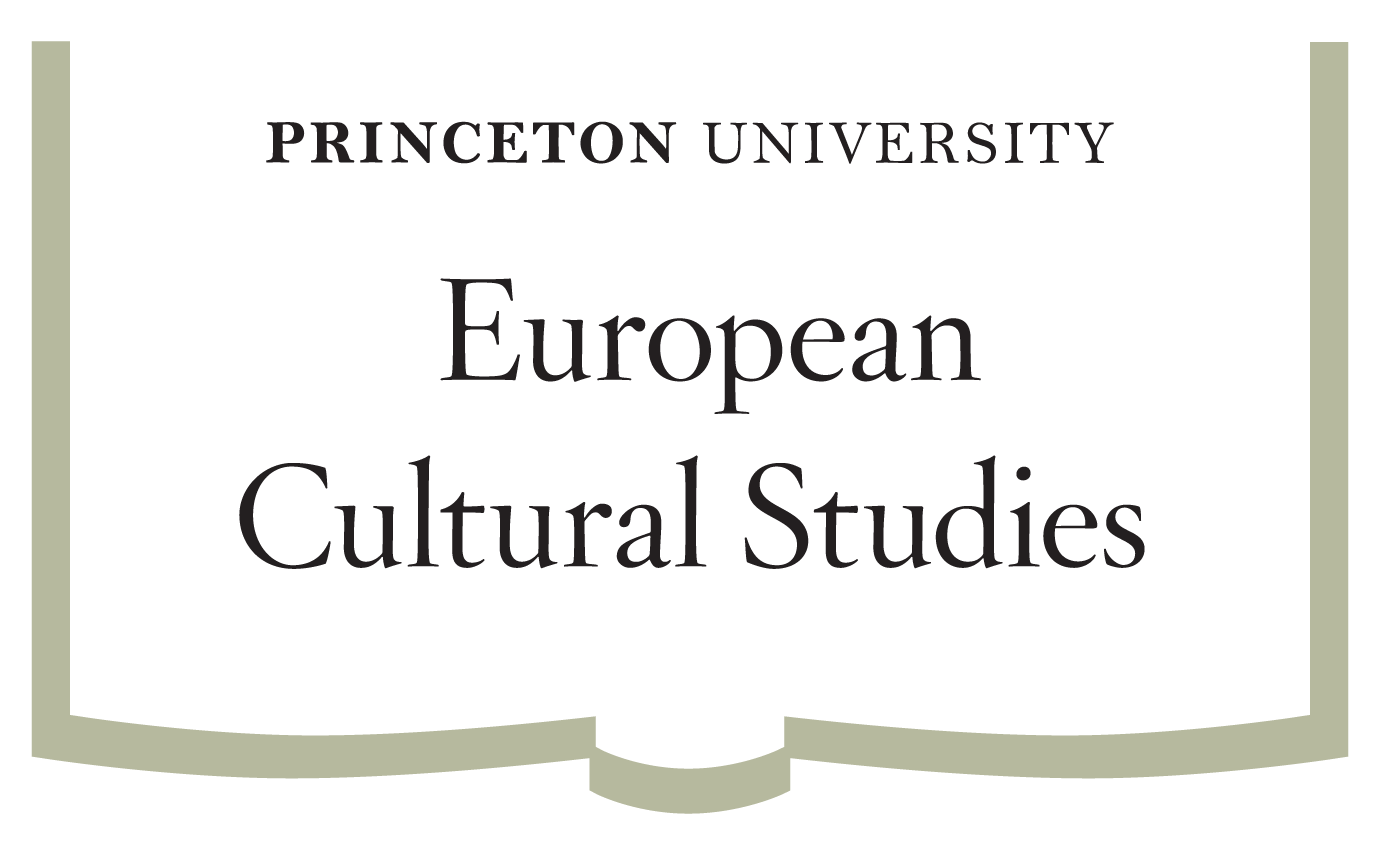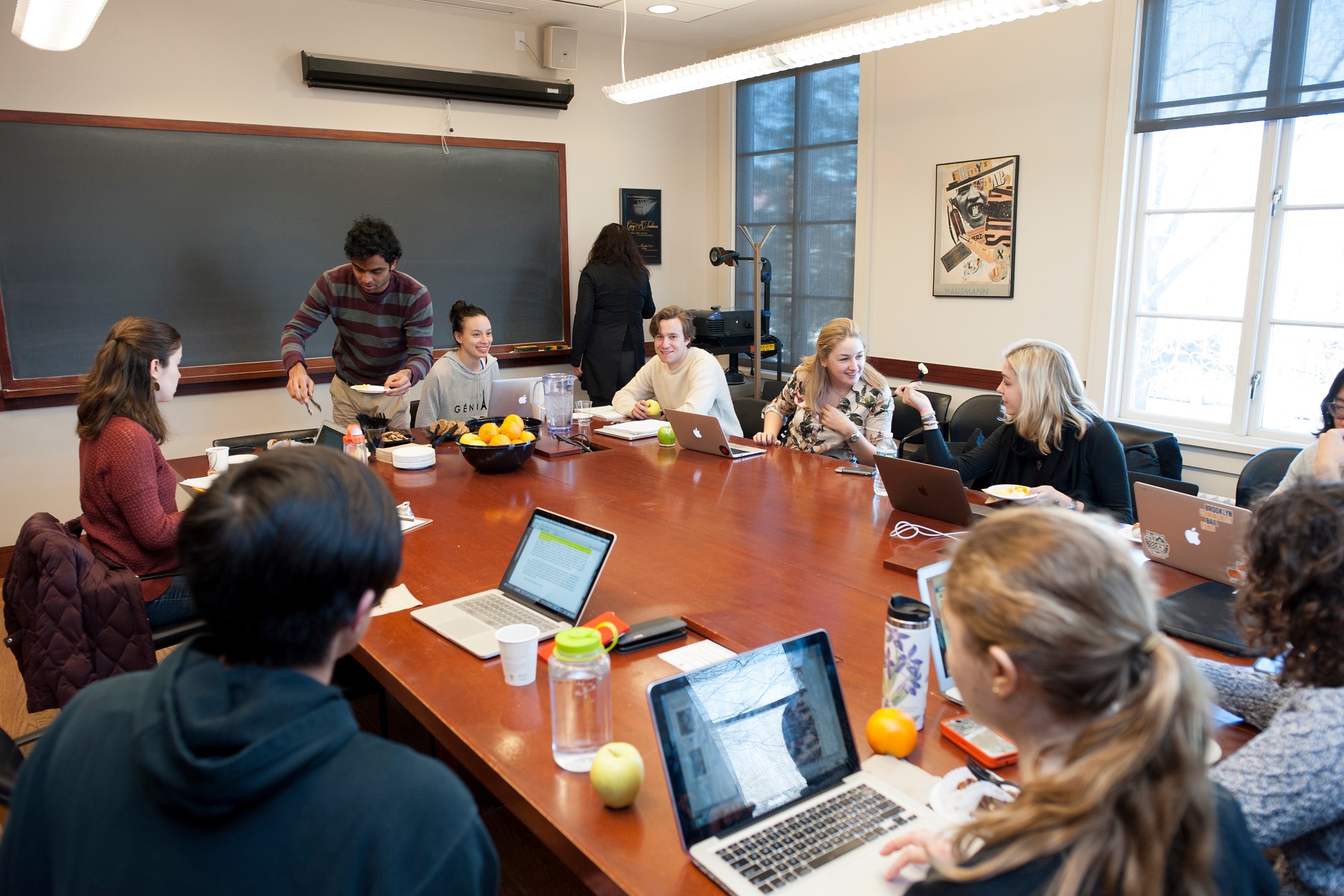From the late fall until the middle of the spring of the senior year, ECSers meet once a week, over a meal, to address common problems in the research, conceptualization, organization, and writing of the senior thesis under the supervision of the Director of the Program. In advance of each weekly session, two or three students submit excerpts of their thesis work for close, critical reading by all members of the colloquium. During the sessions, students make introductory presentations of their projects, which are followed by focused discussions of the submitted work that often carry over into post-colloquium gatherings in cafes in off-campus. This year’s ECS Senior Thesis Colloquium generated spirited conversations about student research projects on a wide range of topics, including:
- curiosity and literary imagination in Victorian fiction
- political organizations on the far left and the far right in the French départmente of Alger, 1933-45
- a critique our conceptions of morality and moral status with regard to the creation of superintelligent Artificial Intelligence systems and an effort to sharpen our understanding as to what beings fall under the realm of moral status
- interrelationships between the arts and sciences in the novels of William Gaddis
- Catherine de Valois and the constraints of queenship in the 15th-century England
- memorializations of the Pied-Noir narrative of forced emigration in literature and in other forms of culture and social life in late 20th-century and present-day France
- engagements with global trade and its attendant politics in the work of contemporary artists Andreas Gursky and Taryn Simon, examined in relation to cultural techniques of 17th-century Dutch still-life painting
- an historical and ethnographic analysis of religious identity as one of several factors that shape group cohesiveness and belonging among Syriac Orthodox Christians in contemporary Berlin, Germany
- social and political conflicts in contemporary Norway that have arisen from tensions between a highly secularized and homogenous native population and recent Muslim immigrants who tie religion to law and statecraft
- the problem of land expropriation and public goods provision in newly urbanized parts of China
- a critical and quantitative reevaluation of the so-called Resource Curse that holds that countries endowed with abundant and lucrative natural resources tend to adopt authoritarian forms of government
- positivism and the Religion of Humanity in Victorian Britain
- the development of the Sadler’s Wells Ballet in England during the Second World War, repercussions of increasing state involvement in the arts, and the distinction between national and nationalist art forms
- themes and forms of cultural mourning in the work of three Asian-American writers/artists in the Marxist tradition: H. T. Tsiang, Tao Lin, and Chien Wen Lin
ECSers write their senior theses under the direction of advisors from their home departments, and are not required to focus on a European topic. This allows for full participation in the senior thesis colloquium by all ECSers, including those with departmental concentrations in engineering and the natural sciences. For the purposes of the Senior Thesis Colloquium, certificate students from the natural sciences and engineering have the option to submit a paper written for an ECS course for circulation and discussion, or they may opt to share material drawn from thesis research in order to discuss aspects of their projects that intersect with the broader concerns of the colloquium. Many ECS alumni have described the ECS Senior Thesis Colloquium as a high point of their studies at Princeton, and ECS faculty who have led the Senior Thesis Colloquium over the years have taken special pride in maintaining this vital part of the Program’s intellectual tradition.













